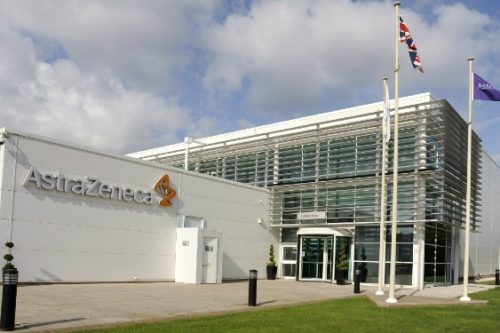Chancellor’s life sciences support leads to new vaccine manufacturing plant

In today’s Budget the Chancellor outlined a range of investment initiatives, including one to support the creation of a new £450m vaccine manufacturing site in Liverpool.
Pharmaceutical giant, AstraZeneca, has a strong North West presence, with key sites in Macclesfield and in Speke, South Liverpool, employing a total of around 4,700 staff. Speke currently employs 400 staff, which will rise to 500 following the latest investment.
The group was at the forefront of developing a vaccine for the Covid-19 pandemic, and provided treatment at cost as vaccinations ramped up in the UK and across the world.
Today, the Chancellor outlined government support that will enable AstraZeneca to invest £650m in its facilities in Speke, and Cambridge.
In a highly politicised address, with constant pre-General Election jibes thrown across the floor of the House, he said: “I have long believed that we should be manufacturing medicines, as well as developing them.
“So I can today also announce a brand new investment by one of our greatest life science companies, AstraZeneca, led by mon amis, the irrepressible Sir Pascal Soriot.
“Astrazeneca made their Covid vaccine available to developing countries at cost, as a result saving over six million lives.
“And today, because of government support for the life sciences sector they announce plans to invest £650m in the UK to expand their footprint on the Cambridge BioMedical campus and fund the building of a vaccine manufacturing hub in Speke, in Liverpool.”
The Speke site currently makes an influenza vaccine in partnership with its sister site located in Philadelphia, USA.
Around 400 staff, comprised of scientists, manufacturing associates, engineers, quality professionals and support personnel, support AstraZeneca’s new Vaccine & Immune Therapy Area there.
It is the second largest Biologics site within the network, and a centre of excellence for testing and certification of medicines – supporting a further three additional commercial medicines.
The Speke site is at the heart of new ways to maximise learning and development, by advancing research, driving continuous improvement, and embracing digital by introducing collaborative robots and automation to processes.
Senior director, site operations, AstraZeneca UK, Mark Proctor, said ahead of the Budget: “Our site in Liverpool will play a critical role in delivering the Vaccine and Immunology Therapy Area’s future ambition. It’s unique in that it employs expertise from research scientists manufacturing, testing and releasing flu vaccination. Scientific excellence, agility and reliability in the vaccine space is needed now more than ever, and I’m proud that the site can provide great expertise in this area.”
Earlier this year it was reported that AstraZeneca was looking to get up to £100m of support from Whitehall to expand the vaccine manufacturing facility in Speke.
In January, a Financial Times report said the group was preparing a formal application for the cash to help expand its operations there.
At the time, the option to expand its medicines manufacturing capacity was a toss-up between Speke, and AstraZeneca’s Macclesfield site.
Labour MP, Maria Eagle, whose Garston and Halewood constituency includes Speke, pledged at the time to support any development in the Liverpool site, saying: “I will support in any way I can their expansion plans. It would be good for the country in terms of resilience against future pandemics and for the local community. I hope the Government will support them to enable this development to go ahead.”
Last May, the Chancellor unveiled support for the life sciences sector through a £650m “war-chest”.
Last July, AstraZeneca chief executive, Pascal Soriot, was appointed to Prime Minister Rishi Sunak’s business council.
Previously, Soriot had been quoted as saying the UK’s ambition to become a life-sciences superpower was being hampered by a discouraging tax environment and the wider business climate.








